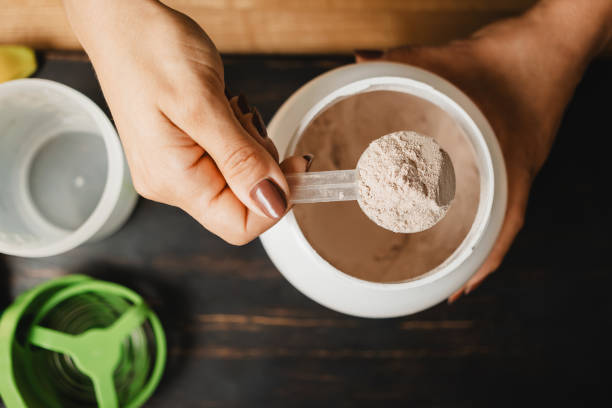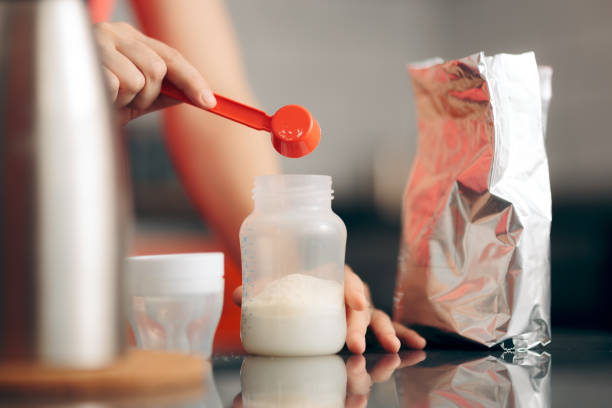Can You Take Creatine While Breastfeeding? Creatine Supplementation During Pregnancy
Can You Take Creatine While Breastfeeding?
Creatine is a popular supplement for improving physical performance, but can you safely use it while breastfeeding?
This article explores the science, potential benefits, and risks to help you make an informed choice.
Article Outline
What Is Creatine?
- Explanation of creatine and its role in the body.
- Common uses of creatine supplements.
How Does Breastfeeding Affect Nutritional Needs?
- Overview of a nursing mother’s dietary requirements.
- Importance of adequate nutrition for milk production.
Is Creatine Safe While Breastfeeding?
- Current research on creatine safety for breastfeeding mothers.
- Studies on creatine levels in breast milk.
Potential Benefits of Creatine for Breastfeeding Mothers
- How creatine may support energy and recovery.
- Potential impact on muscle mass and fatigue.
Risks of Creatine Supplementation During Breastfeeding
- Lack of long-term studies.
- Concerns about infant kidney function and serum creatinine levels.
How Much Creatine Is Considered Safe?
- Recommendations for dosage.
- Normal range of creatine levels in the body.
Does Creatine Pass Into Breast Milk?
- Research on creatine concentration in human milk.
- Impact on the nursing infant.
Alternatives to Creatine for Nursing Mothers
- Other dietary supplements that may be beneficial.
- Foods that naturally boost creatine levels.
Consulting with a Healthcare Provider
- Why professional guidance is essential.
- Questions to ask your healthcare provider.
FAQs About Creatine and Breastfeeding
- Quick answers to common concerns.

1. What Is Creatine?
Creatine is a compound naturally found in the body, primarily in muscle cells. It plays a key role in producing energy during high-intensity activities.
Many people use creatine supplements to improve athletic performance, increase muscle mass, and support recovery.
You can learn more about creatine in our Creatine Supplements Ultimate Guide or dive deeper into Creatine Monohydrate Gummies.
2. How Does Breastfeeding Affect Nutritional Needs?
Breastfeeding increases a mother’s energy and nutrient requirements. Nursing mothers need a balanced diet to ensure adequate milk production and support their health.
Adding dietary supplements may help meet these demands. Creatine, being a naturally occurring compound, is often sought for its energy-boosting properties.
For more on how creatine supports your body, check out How Does Creatine Work.
3. Is Creatine Safe While Breastfeeding?
Research on the safety of creatine supplementation during breastfeeding is limited.
While creatine is a normal component of human milk, its effects on infants through supplementation are not well studied.
Consulting your healthcare provider is essential before use.
If you're looking for insights on other forms of creatine, read our comparison on Creatine Powder vs Pills.

4. Potential Benefits of Creatine for Breastfeeding Mothers
Creatine may help nursing mothers combat fatigue and recover from physical activity. It could also support muscle maintenance, especially for those resuming exercise postpartum.
However, studies are yet to confirm these benefits in breastfeeding populations.
If you're curious about how creatine impacts recovery, check out our Creatine Recovery article.
5. Risks of Creatine Supplementation During Breastfeeding
While creatine is generally safe for adults, its effects on infants through breast milk remain unclear.
Increased creatine levels may alter estimations of the infant’s kidney function.
Long-term studies are needed to fully understand these risks.
To better understand how creatine interacts with the body, explore our post on Creatine Supplementation Side Effects.

6. How Much Creatine Is Considered Safe?
The normal range of creatine levels in adults varies. Most supplements provide 3-5 grams per serving.
Nursing mothers should avoid excessive dosages and consult a healthcare provider to ensure safety.
For more on appropriate creatine intake, check out our Creatine Loading Phase.

7. Does Creatine Pass Into Breast Milk?
Studies suggest that creatine is a normal component of human milk.
However, supplementation may increase its concentration, potentially affecting the infant’s serum creatinine levels.
More research is needed to understand these effects fully. To further explore creatine’s effect on the body, read our article on Creatinine vs Creatine.
8. Alternatives to Creatine for Nursing Mothers
Foods like red meat and fish naturally contain creatine.
Other dietary supplements, such as protein powders or omega-3 fatty acids, may also support postpartum recovery without the uncertainties of creatine use.
Check out our Vegan Creatine post for plant-based alternatives.

9. Consulting with a Healthcare Provider
Always consult your healthcare provider before taking creatine or any dietary supplement.
They can assess your unique needs and guide you on safe supplementation.
Our article on Creatine Dietary Considerations discusses dietary factors to consider with creatine use.
10. FAQs About Creatine and Breastfeeding
- Is creatine safe to consume during pregnancy and breastfeeding? Research is limited, so consult a healthcare provider.
- Does creatine supplementation affect milk production? There is no evidence to suggest it impacts milk production.
- What are the risks of creatine for nursing infants? Increased serum creatinine levels may pose risks, but studies are needed.
Summary
- Creatine is a normal component of human milk but may increase with supplementation.
- Safety for breastfeeding mothers and infants remains uncertain due to limited research.
- Consult your healthcare provider before using creatine while breastfeeding.
- Consider alternatives like natural food sources or other dietary supplements.
- Prioritize your and your baby’s health by making informed choices.
Works Cited
- Brosnan, J. T., and M. E. Brosnan. “Creatine: Endogenous Metabolite, Dietary, and Therapeutic Supplement.” Annual Review of Nutrition, vol. 27, 2007, pp. 241–261, doi:10.1146/annurev.nutr.27.061406.093621.
- Gualano, B., et al. “Creatine Supplementation: Examining the Risk of Chronic Kidney Disease.” The Journal of Sports Medicine and Physical Fitness, vol. 51, no. 1, 2011, pp. 1–7, doi:10.1136/bmj.b927.
- Harris, R. C., et al. “The Creatine Kinase Reaction: A Simple Cellular Energetics Solution.” BMC Pregnancy and Childbirth, vol. 14, 2014, doi:10.1186/1471-2393-14-150.
- Persky, A. M., and D. A. Brazeau. “Clinical Pharmacology of the Dietary Supplement Creatine Monohydrate.” Pharmacological Reviews, vol. 53, no. 2, 2001, pp. 161–176, doi:10.1124/pr.53.2.161.
- Sakkas, G. K., et al. “The Role of Creatine Supplementation in Postpartum Recovery: Muscle and Cellular Implications.” European Journal of Applied Physiology, vol. 85, 2001, pp. 168–173, doi:10.1007/s004210100420.
- Tarnopolsky, M. A., et al. “Creatine Supplementation in Women: Risks and Benefits.” Medicine & Science in Sports & Exercise, vol. 32, no. 3, 2000, pp. 654–658, doi:10.1097/00005768-200003000-00021.
- Wallimann, T., et al. “Creatine Metabolism and the Consequences of Creatine Depletion.” Molecular and Cellular Biochemistry, vol. 244, no. 1-2, 2003, pp. 183–194, doi:10.1023/A:1022478408665.
For More Training Advice + Diet and Lifestyle visit us Combat Creatine
PS: Make sure you check out the rest of our Creatine Guides:
Creatine
Creatine Supplements Ultimate Guide
Creatine Supplementation Side Effects
Best Creatine Monohydrate Gummies Review: Top 10 Best Creatine Gummies












